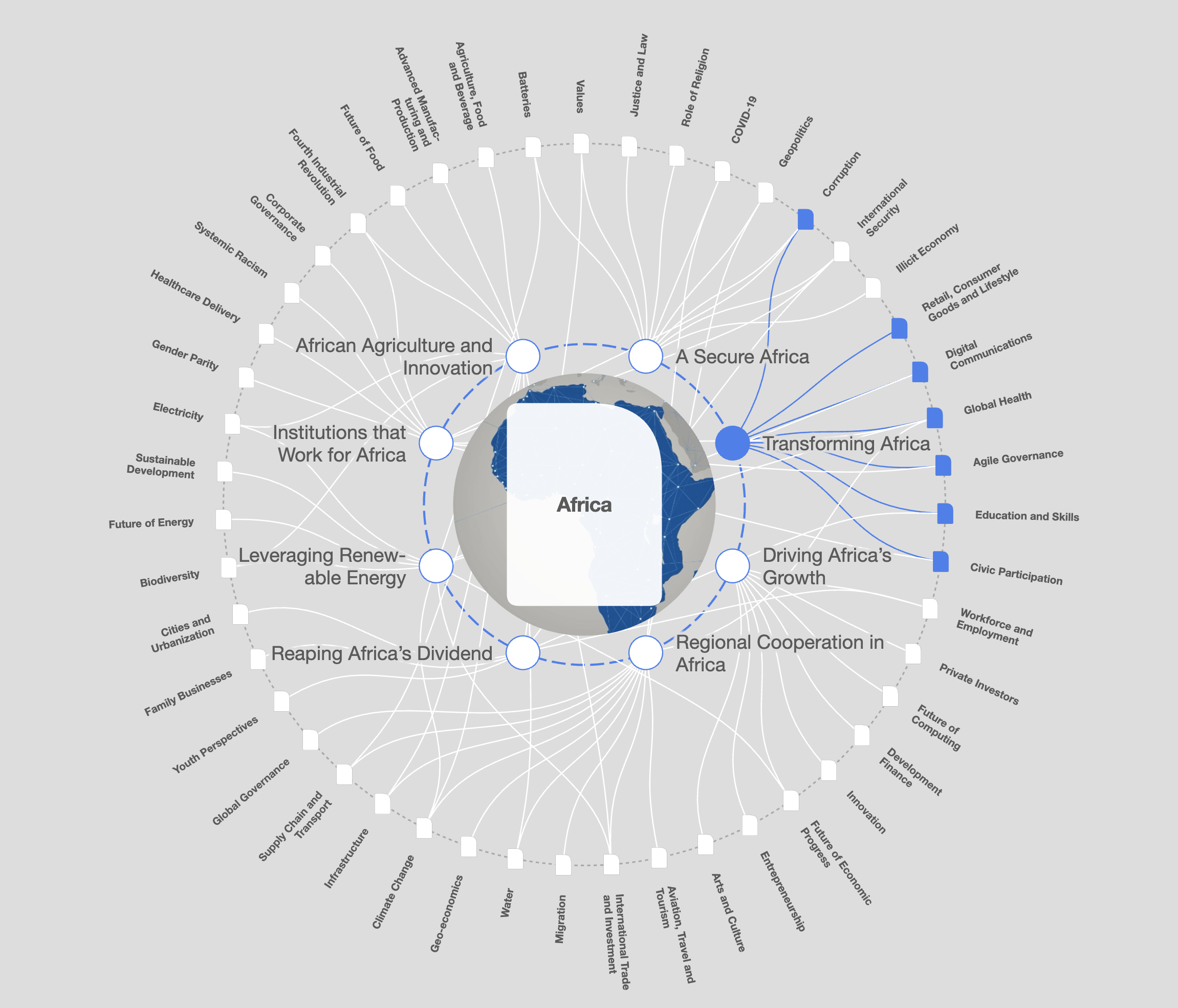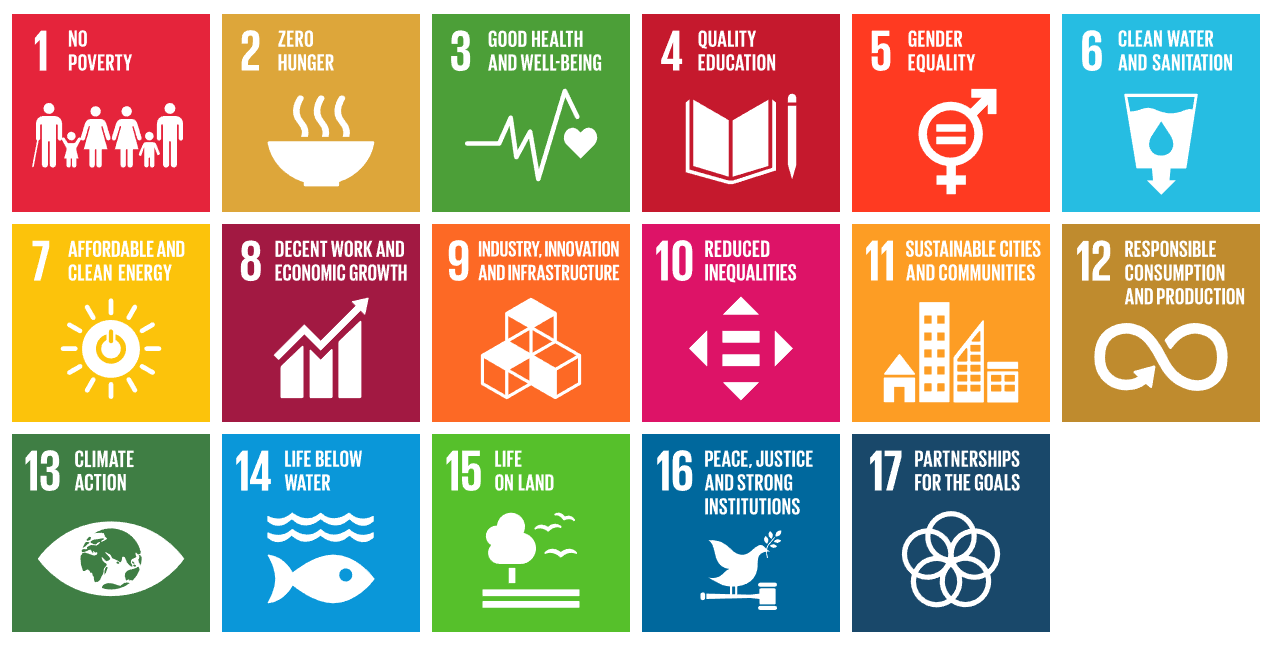There is no question that South Africa and the rest of Africa have much to overcome. While this has been the case for some time we believe now these challenges have been even more compounded by Covid-19.
Currently Africa accounts for 20% of the worlds population but only 3% of the global GDP.
This is due to many varying issues ranging from politics to infrastructure and everything in between as laid out so succinctly by the World Bank. The COVID-19 (coronavirus) outbreak has set off the first recession in the Sub-Saharan Africa region in 25 years, with growth forecast between -2.1 and -5.1 in 2020, from a modest 2.4% in 2019. We of course know that a lot of work has gone into tackling these African problems from many public and private sector organizations, the World Economic forum has put together a helpful framework of mapping the challenges and solutions.
 Most of us by now are well aware that the United Nations Global Development Goals for 2030 has laid out a Roadmap for the world to aim towards as well as track progress along the way.
Most of us by now are well aware that the United Nations Global Development Goals for 2030 has laid out a Roadmap for the world to aim towards as well as track progress along the way.
 Here is a South Africa's progress so far: https://www.goaltracker.org/countries/south-africa/
Here is a South Africa's progress so far: https://www.goaltracker.org/countries/south-africa/
The United Nations Global Compact Network South Africa has helped fast track many of the largest companies on the African continent in aligning their corporate strategies to deliver on the 2030 Agenda.
Here is a video of Standard Banks 2030 African Visioning Story:
What's that I hear you say:
"Rome wasn't built in a day"
Sure, a great saying and true in many instances except this one. This is probably the approach most companies have taken as we all accept the status quo and wait for the African middle-class to grow. However, Covid-19 has removed the luxury of time, and is now causing companies to take part in building the future African middle class. Essentially, we need to create a market for ourselves.
And this is where I believe companies and organisations of all shapes and forms need to act and do so swiftly. We strongly believe that the goals mentioned above are not at odds with generating revenue and stakeholder value. Quite the opposite, looking at the market data readily available we see a very strong economic point to be made why every single company who has customers living in Africa and South Africa should adapt their corporate growth strategy to not only include some of these goals in their strategy, but see it as a driver for growth.
While we believe all the goals as laid out by the UN are important, we believe for us in Africa special attention should be given to those that can have a direct effect on our economy in the short to medium term.
The business case for serving the 80%
For the longest time we have all been guilty of focussing most of our efforts in developing products and services aimed at consumers that fall into an LSM that have enough money or disposable income to buy from us. Depending on how much budget is left over we spend the rest on the lower end of the market not expecting much in return. Because after all, reaching those people on a mobile phone is hard.
Most of the time that approach leaves us with spending most of our time and money focussing on a total addressable market that consists of a customer base that falls into the top 10-20% of our country in economic terms.
Those companies that do have a core product or service at a price point aimed at the rest of the 80% of our country are often delivering that service in a way that is expensive due to having to rely on a manual sales process (like call centre's) and other, even more manual operational models brought on by legacy IT systems and processes. These combined factors often lead to a squeeze on profit margins, ultimately forcing businesses to increase the price of their product or service, compelling companies to move further up the consumer LSM, shrinking their consumer base.
You don't have to look hard to find companies that have identified this opportunity as we've seen new companies entering the market with affordable products and services aimed at the majority of our country. A great example are all the new challenger banks like Bank Zero, Thyme and Bettr that have re-imagined the entire banking business model, operational and technical stack from the ground up. This enables them to offer better service at a price point that is out-competing incumbents.
Investec, who traditionally have served high networth customers, over the last while has purposefully dropped it's minimum investable amount to cater for more of the South African and African market, widening it's potential customer base by an order of magnitude.
One of the most recent stories out of Africa is from Paystack recently being acquired by Stripe. This further re-inforces that in the 21st century eyes are on the developing world and anything is possible.
You can win in Africa without re-inventing your whole business.
It's true, the good news is you don't have to start from the ground up. Their are existing services and products that you have right now that can be delivered more efficiently and using a channel that is fit for purpose that can begin showing returns faster than you think.
Over the coming months we will be writing extensively from our own experience as well as from the learnings of others as to the various ways we see companies being able to reach this new African Economy.
Interested to find out how we are helping companies like yours unlock growth by reaching the 80% the new African Economy?
Reach out to newbiz@urbian.co.za